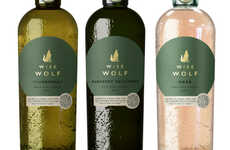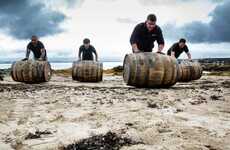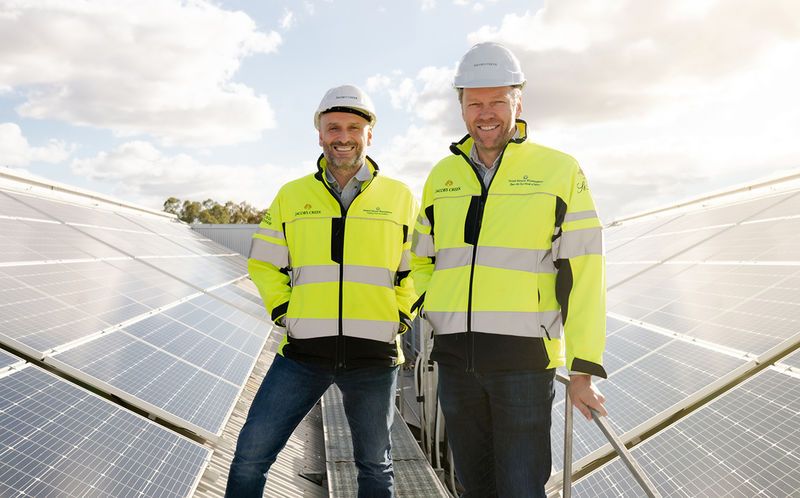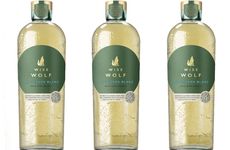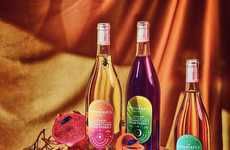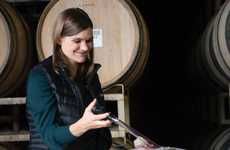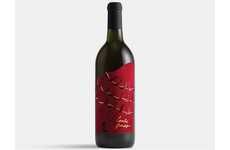
Pernod Ricard Winemakers is Now Powered by Eco Energy
Michael Hemsworth — December 8, 2019 — Eco
References: pernod-ricard-winemakers & foodbev
Pernod Ricard Winemakers has announced that it is now operating with 100% renewable energy in Australia in a bid to help reduce its emissions and shift the brand into a more sustainable entity.
The implementation of renewable energy into the production chain will see all wines created by brands including St Hugo, Jacob's Creek and Wyndham Estate created in a more sustainable manner. The news comes well ahead of schedule as the brand initially made a commitment to reach the renewable energy goal by 2025.
Pernod Ricard Winemakers' COO Brett McKinnon spoke on the announcement saying, "Our journey began in 2016 with a pilot solar installation after we recognised that we had a huge opportunity across our wineries to harness the power of the sun through solar panels. Three years later, we are exceptionally proud to say that we are now sourcing all electricity from renewable sources, in alignment with our global ambition.”
The implementation of renewable energy into the production chain will see all wines created by brands including St Hugo, Jacob's Creek and Wyndham Estate created in a more sustainable manner. The news comes well ahead of schedule as the brand initially made a commitment to reach the renewable energy goal by 2025.
Pernod Ricard Winemakers' COO Brett McKinnon spoke on the announcement saying, "Our journey began in 2016 with a pilot solar installation after we recognised that we had a huge opportunity across our wineries to harness the power of the sun through solar panels. Three years later, we are exceptionally proud to say that we are now sourcing all electricity from renewable sources, in alignment with our global ambition.”
Trend Themes
1. Renewable Energy in Production - Companies across industries can explore implementing renewable energy sources in their production chain to reduce emissions and shift toward sustainability.
2. Accelerated Sustainability Goals - Setting ambitious sustainability goals that aim for early achievement can position companies as sustainability leaders in their industry.
3. Solar Power in Manufacturing - Use of solar panels in manufacturing plants can open up opportunities for companies to harness clean energy and lower emissions.
Industry Implications
1. Wine Production - Wine producers can explore the adoption of renewable energy in their production process to align with consumer demand for sustainability and reduce their carbon footprint.
2. Manufacturing - Manufacturing companies can explore solar power as a means to reduce emissions and shift to sustainable energy sources in their factories.
3. Food & Beverage - Food and beverage companies can follow Pernod Ricard Winemakers' lead and make early commitments to using 100% renewable energy to manufacture their products, thus reducing their carbon footprint.
1.5
Score
Popularity
Activity
Freshness



